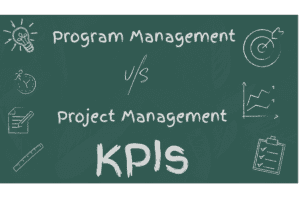Product Owners play a crucial role in product development and delivery within organizations. They are responsible for ensuring the success of the product and have the authority to make decisions regarding its development. To become a successful Product Owner, certain skills and characteristics are essential.
Embracing the product vision is key for a Product Owner, as it provides the guiding direction for the product’s development. In addition, having in-depth knowledge about the product and being an effective communicator are vital. A successful Product Owner should also possess problem-solving skills, listening skills, and customer knowledge to make informed decisions and deliver a high-quality product.
Obtaining certification can further enhance your expertise as a Product Owner. Earning a product owner certification demonstrates your commitment to professional development and validates your skills and knowledge in the field.
Key Takeaways:
- Embrace the product vision to guide product development.
- Develop in-depth knowledge about the product.
- Prioritize effective communication and problem-solving skills.
- Actively listen to stakeholders and customers to make informed decisions.
- Consider obtaining a product owner certification to enhance your expertise.
The Importance of the Product Owner Role
In today’s Agile environments, the role of a Product Owner is crucial, particularly in organizations that utilize the Scrum framework. Product Owners play a critical role in driving the success of product development. They are the face of the product and hold the responsibility for creating, ordering, and validating the work to be performed. Their interactions with internal stakeholders, customers, and the development team are essential for ensuring the product’s success.
A great Product Owner should have a clear vision for the product and possess a deep understanding of the market, the product itself, the business objectives, and the constraints involved. Effective communication skills are vital for collaborating with stakeholders and managing expectations. By proactively engaging with stakeholders and incorporating their input, the Product Owner can make informed decisions that contribute to the product’s development and success.
While the specific responsibilities of a Product Owner may vary depending on the organization, their core responsibilities include:
- Defining and prioritizing product features and requirements
- Collaborating with stakeholders to gather feedback and refine product vision
- Translating customer needs into actionable user stories
- Working closely with the development team to ensure smooth execution
- Validating and accepting completed work in accordance with the product vision
By effectively fulfilling these responsibilities, the Product Owner plays a critical role in driving the product’s success. They ensure that the efforts invested by the development team align with the product vision, and that the resulting product meets the needs and expectations of the stakeholders and customers.
Now that we understand the importance of the Product Owner role, let’s explore the characteristics that make a great Product Owner in the next section.
Characteristics of a Great Product Owner
To be a great Product Owner, certain characteristics are necessary. These include:
- Embracing the product vision
- Having immense knowledge about the product
- Being an amazing storyteller
- Being extremely communicative
- Being a great problem solver
- Being an efficient listener
- Understanding customer expectations
- Knowing how to act on different levels
- Having the ability to say no
“A great Product Owner is someone who not only understands the product inside out but is also able to communicate its value effectively to stakeholders and customers. They have the ability to listen to feedback, solve problems, and make informed decisions that align with the product vision.
These characteristics can be developed through training and certification in agile practices and product ownership. By enrolling in product owner training programs, individuals can deepen their understanding of agile methodologies and learn how to apply them effectively in their role as a Product Owner. Additionally, obtaining a product owner certification validates their skills and knowledge, showcasing their expertise in the field.

By honing these characteristics and leveraging the knowledge gained through training and certification, Product Owners can excel in their role and contribute to the success of product development in organizations.
The Role of the Product Owner in Agile Development
In the world of agile development, the Product Owner plays a pivotal role in driving the success of a product. With their unique set of skills and responsibilities, the Product Owner is key to maximizing the value delivered to customers and stakeholders.
As the name suggests, the Product Owner is the individual who “owns” the product. They are responsible for setting the product vision and ensuring that the development team’s work aligns with that vision. The Product Owner acts as the bridge between the stakeholders and the development team, collaborating closely with both parties to ensure a successful product.
Roles and Responsibilities
A core responsibility of the Product Owner is prioritizing the product backlog. They gather requirements from stakeholders and translate them into user stories or product backlog items. These requirements are then prioritized based on the value they bring to the product and the needs of the stakeholders. By effectively managing and prioritizing the backlog, the Product Owner ensures that the development team is focused on delivering the most valuable features first.
Making key decisions about the product’s development is crucial role of the Product Owner. They have the authority to make decisions on behalf of the stakeholders and guide the development team’s efforts. This requires a deep understanding of the market, the customers, and the project constraints. The Product Owner must have the ability to analyze data, conduct user research, and make informed decisions that will drive the success of the product.
The Product Owner acts as the voice of the customer. They represent the needs and expectations of the customers to the development team, ensuring that the final product meets their requirements. This requires effective communication and collaboration skills, as well as a keen understanding of the customers’ needs and desires.
By embodying these responsibilities, the Product Owner acts as a driving force behind the creation of high-quality products that meet the needs of the customers and stakeholders.
Responsibility Matrix
| Responsibilities | Description |
|---|---|
| Gathering and prioritizing requirements | Collaborates with stakeholders to gather requirements and prioritizes them based on value and stakeholder needs. |
| Setting the product vision | Establishes a clear vision for the product and ensures that the development team’s work aligns with that vision. |
| Making key decisions | Empowered with authority to make decisions on behalf of stakeholders and guides the development team’s efforts. |
| Representing the voice of the customer | Advocates for the needs and expectations of the customers to ensure that the final product meets their requirements. |
| Collaborating with stakeholders | Gathers feedback to address concerns and align the product with organizational goals by working closely with stakeholders. |
Skills and Training for Product Owners
Product Owners play a critical role in product development, requiring a diverse range of skills and knowledge to excel in their position. In addition to technical proficiency, Product Owners need a deep understanding of business and design principles. Let’s explore the essential skills and the training opportunities available to enhance their capabilities.
Skills for Success
To succeed as a Product Owner, professionals must possess the following skills:
- Product Knowledge: Developing a deep understanding of the product being built, its features, and functionalities is crucial. This knowledge helps Product Owners make informed decisions and communicate effectively with stakeholders.
- Market Understanding: Being aware of market trends, customer needs, and competitive landscapes enables Product Owners to align product development with market demands, driving its success.
- Effective Communication: Product Owners must communicate product goals, requirements, and updates to stakeholders, development teams, and customers clearly and concisely. Strong communication skills foster collaboration and ensure shared understanding.
- Collaboration: Working closely with cross-functional teams, such as designers, developers, and marketers, is vital for Product Owners. Collaboration facilitates effective decision-making, prioritization, and problem-solving.
Training and Certification Programs
“Investing in training and certification can greatly enhance the skills and expertise of Product Owners. These programs provide specialized knowledge in agile practices, product ownership principles, and effective communication and collaboration techniques.”
Product owners can benefit from various training and certification programs, including:
| Program | Description |
|---|---|
| Agile Product Owner Training | This program focuses on developing skills specific to agile environments and Scrum methodologies. It covers topics like backlog management, user story creation, stakeholder engagement, and prioritization techniques. |
| Product Owner Certification | This certification validates the knowledge and expertise of Product Owners. It demonstrates mastery of agile product ownership principles, effective collaboration, and strategic decision-making. |
| Business and Design Courses | Enrolling in business and design courses helps Product Owners acquire a broader perspective, enabling them to align product development with business objectives and user-centered design principles. |
By undergoing these training programs and obtaining certifications, Product Owners can gain a competitive edge in the industry, showcase their expertise, and effectively drive the success of their products.
With the right skills and training, Product Owners can confidently navigate the challenges of their role, deliver exceptional products, and contribute to the growth and success of their organizations.
Challenges and Solutions for Product Owners
Being a Product Owner can be challenging due to the wide range of responsibilities and the need to balance the interests of stakeholders. As the key decision-maker and authority figure for product development, Product Owners face various hurdles in their role. Here are some of the common challenges encountered by Product Owners and effective solutions to overcome them.
1. Managing Expectations
One significant challenge for Product Owners is managing the expectations of stakeholders, including customers, management, and the development team. Stakeholders often have different priorities, timelines, and expectations, which can create conflicts and delays in product development.
“As a Product Owner, it’s crucial to establish clear and realistic expectations with stakeholders upfront. Regular communication, setting realistic timelines, and managing stakeholders’ expectations through effective negotiation and collaboration are key to address this challenge.”
2. Prioritizing Tasks
The Product Owner is responsible for prioritizing tasks and features for product development. This requires a deep understanding of the product vision, customer needs, market trends, and business goals. However, with limited resources and evolving requirements, determining the right priorities can be a complex task.
“To address this challenge, Product Owners can utilize agile practices like backlog refinement and user story mapping. These techniques help in breaking down tasks into manageable units, prioritizing based on value and urgency, and adapting to changing requirements.”
3. Dealing with Changing Requirements
In agile development, requirements are expected to change throughout the project. However, managing these changing requirements while maintaining the project’s scope, timeline, and budget can be a significant challenge for Product Owners.
“To tackle this challenge, Product Owners should foster open communication channels with stakeholders and the development team. Regularly seeking feedback, conducting frequent reviews, and embracing iterative development approaches can help in adapting to changing requirements while keeping the project on track.”
The Future of Product Ownership
As organizations increasingly embrace agile methodologies, the role of the Product Owner is evolving to meet new challenges and opportunities. The future of product ownership will be shaped by several key factors, including deepening customer understanding, embracing emerging technologies, and incorporating user feedback more effectively.
One of the primary focuses of the future Product Owner role will be on deepening customer understanding. In an increasingly competitive market, it is essential for Product Owners to have a deep understanding of customer needs, preferences, and pain points. By leveraging techniques such as user research, data analysis, and customer feedback, Product Owners can ensure that the products they develop truly meet customer expectations.
Another important aspect of the future Product Owner role is the embrace of emerging technologies. With advancements in artificial intelligence, machine learning, and IoT, Product Owners will need to stay informed about the latest technological trends. Furthermore, they need to understand how they can be leveraged to create innovative products. By keeping up with emerging technologies, Product Owners can explore new possibilities and deliver cutting-edge solutions.
Incorporating user feedback more effectively will also be a key focus of the future Product Owner role. User feedback is invaluable in driving product improvement and ensuring customer satisfaction. Product Owners will need to develop mechanisms for systematically gathering user feedback, such as through user testing, surveys, and feedback loops. By actively seeking and incorporating user feedback, Product Owners can continuously improve the products they deliver.

Evolution of the Product Owner Role
“In the future, Product Owners will play a critical role in driving customer-centric product development, leveraging emerging technologies, and continuously incorporating user feedback to deliver exceptional products.” – Jane Johnson, Agile Product Owner
In summary, the future of product ownership will see Product Owners taking on increasingly customer-centric and technology-driven roles. By deepening customer understanding, embracing emerging technologies, and incorporating user feedback more effectively, Product Owners will be at the forefront of creating innovative and impactful products that bring value to both organizations and customers.
| Future Focus | Description |
|---|---|
| Deepening Customer Understanding | Product Owners will prioritize gaining in-depth knowledge of customer needs, preferences, and pain points. |
| Embracing Emerging Technologies | Product Owners will stay updated on the latest technological advancements and leverage them to create innovative products. |
| Incorporating User Feedback | Product Owners will actively seek and incorporate user feedback into product development to ensure continuous improvement. |
Benefits and Opportunities of Becoming a Product Owner
Becoming a Product Owner offers numerous benefits and opportunities. As a Product Owner, you have the chance to shape innovative products, work closely with stakeholders and customers, and contribute to the success of your organization. It is also considered one of the highest paying jobs in the IT industry. With the increasing demand for agile product development practices, there are ample opportunities for skilled and certified Product Owners to thrive in their careers.
Key Benefits of Becoming a Product Owner:
- Shape innovative products: As a Product Owner, you have the exciting opportunity to influence the direction and features of the products you work on. You play a pivotal role in translating customer needs into tangible product features, thereby driving innovation within your organization.
- Collaborate with stakeholders and customers: The role of a Product Owner involves working closely with various stakeholders, including customers, development teams, and business leaders. This collaborative environment allows you to gain insights from different perspectives and build strong relationships with key decision-makers.
- Contribute to organizational success: As the owner of the product, your decisions and actions directly impact the success of the organization. By effectively managing the product backlog, prioritizing features, and making informed decisions, you play a critical role in delivering value to customers and achieving business goals.
- High earning potential: Product Owners are in high demand, and their expertise is rewarded with competitive salaries and benefits. According to industry reports, the average salary for Product Owners in the IT industry is well above the national average, making it a lucrative career choice.
Opportunities for Skilled and Certified Product Owners:
The demand for skilled and certified Product Owners continues to rise as organizations embrace agile methodologies. With the increasing importance of product development practices that prioritize customer value and adaptability, there are ample opportunities for Product Owners to make a significant impact in the industry.
Organizations in technology, e-commerce, finance, healthcare, and more seek Product Owners. They value agile understanding, communication skills, and strategic thinking. Obtain certifications and pursue continuous development. Position yourself as a sought-after Product Owner to unlock exciting opportunities.
“Becoming a Product Owner not only offers a fulfilling and rewarding career but also allows you to be at the forefront of innovation and drive impactful change within your organization.”
| Key Benefits of Becoming a Product Owner | Opportunities for Skilled and Certified Product Owners |
|---|---|
| Shape innovative products | Diverse career opportunities |
| Collaborate with stakeholders and customers | Unique chances for professional growth |
| Contribute to organizational success | High earning potential |
Becoming a Product Owner offers a dynamic career path with endless possibilities. Whether you are just starting your career or looking to transition into a new role, embracing the responsibilities and opportunities of a Product Owner can be a fulfilling and rewarding choice.
FAQ
How do I become a product owner?
To become a product owner, it is important to develop skills such as embracing the product vision, having in-depth product knowledge, being an excellent communicator and problem solver, and understanding customer expectations. You can also consider training and certification programs to gain the necessary knowledge and skills.
What are the responsibilities of a product owner?
The responsibilities of a product owner include creating, ordering, and validating the work to be performed for product development, collaborating with stakeholders, gathering and prioritizing requirements, and making key decisions about the product’s development. They act as the voice of the customer and work closely with the development team to deliver a high-quality product.
What skills are required to be a successful product owner?
To be a successful product owner, you need skills such as embracing the product vision, having immense knowledge about the product, being an effective communicator, being a great problem solver, being an efficient listener, understanding customer expectations, knowing how to act on different levels, and having the ability to say no.
What is the role of a product owner in Agile development?
In Agile development, the product owner is responsible for maximizing the value of the product and ensuring that the work of the development team aligns with the product vision. They collaborate closely with stakeholders, gather and prioritize requirements, and make key decisions about the product’s development. They act as the voice of the customer and work with the development team to deliver a high-quality product.
How can I acquire the necessary skills and knowledge to become a product owner?
You can acquire the necessary skills and knowledge to become a product owner through training and certification programs. These programs cover agile practices, product ownership principles, and effective communication and collaboration techniques.
What are the challenges faced by product owners and how can they be overcome?
Some challenges faced by product owners include managing expectations, prioritizing tasks, and dealing with changing requirements. Effective communication, collaboration, and stakeholder management skills are key to overcoming these challenges. Additionally, using agile practices such as backlog refinement, user story mapping, and iterative development can help product owners navigate these challenges.
What does the future of product ownership look like?
In the future, product ownership is expected to focus on deepening customer understanding, embracing emerging technologies, and incorporating user feedback more effectively. As organizations become more agile, the importance of the product owner’s role in delivering value to customers will continue to grow.
What are the benefits and opportunities of becoming a product owner?
Becoming a product owner offers numerous benefits and opportunities. Product owners have the chance to shape innovative products, work closely with stakeholders and customers, and contribute to the success of their organization. It is also one of the highest paying jobs in the IT industry. With the increasing demand for agile product development practices, there are ample opportunities for skilled and certified product owners.
How can I excel as a product owner?
To excel as a product owner, embrace the product vision. Acquire deep knowledge of the product. Be an effective communicator. Excel in problem-solving. Listen efficiently. Understand customer expectations. Know how to act at various levels. Possess the ability to say no. Develop these skills through agile and product ownership training.
Conclusion
To become a successful Product Owner, it is crucial to develop the necessary skills and characteristics. To excel in this role, embrace the product vision. Have deep product knowledge. Be an excellent communicator and problem solver. Understand customer expectations. Training and certification programs can provide the knowledge and skills needed to become a proficient Product Owner.
As organizations increasingly adopt agile methodologies, the role of the Product Owner remains crucial in delivering successful products. With the right combination of skills and knowledge, Product Owners can drive innovation, collaborate effectively with stakeholders, and contribute to their organization’s success.
If you aspire to become a Product Owner, consider enrolling in training programs that cover agile practices, product ownership principles, and effective communication techniques. By acquiring the required skills and certification, you position yourself as a valuable asset in the competitive job market. As the demand for agile product development practices continues to grow, skilled and certified Product Owners have abundant opportunities for career advancement and lucrative salaries.
If you liked this article, remember to subscribe to MiamiCloud.com. Connect. Learn. Innovate.






